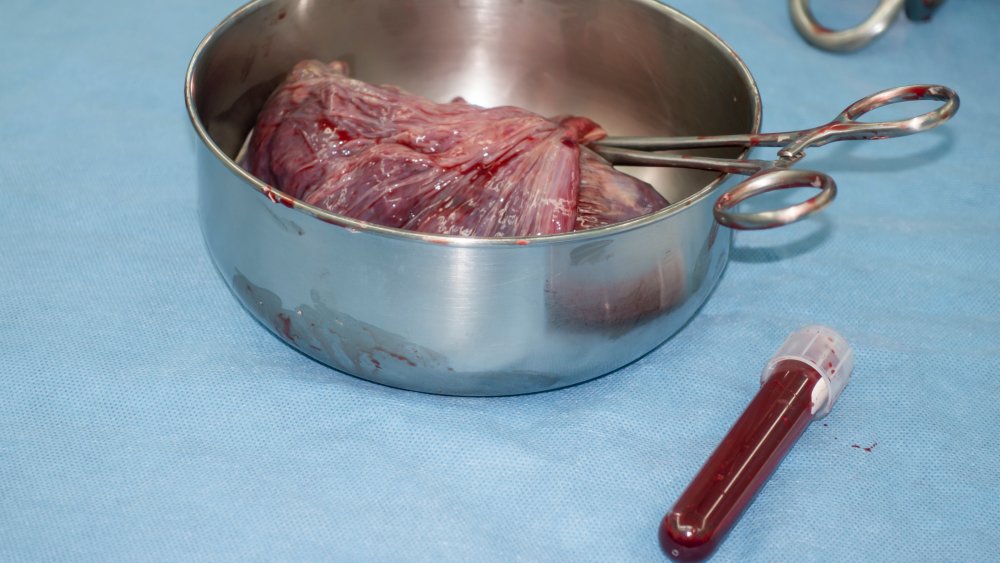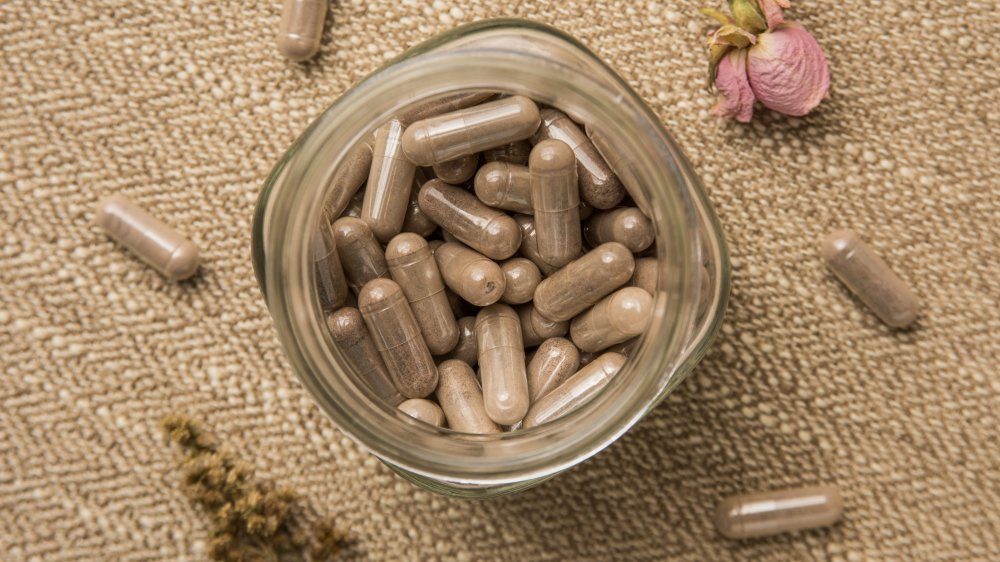The Truth About Eating Your Placenta
Welcoming a little one into this world is a beautiful, yet daunting task. The fun of conception, followed by the nausea, a growing belly, and finally, a labor that almost never goes exactly as planned. It's no wonder exhausted new mothers are willing to try anything to improve their postpartum health! Eating your placenta after birth is one way to possibly accomplish this — it even has its own name: placentophagy. While it may have recently entered mainstream conversation, it is not a new idea. Placentophagy is a common practice in Chinese medicine (via What to Expect).
Before we talk about the possible benefits of eating your placenta, well, what exactly is the placenta? According to Healthline, it is an organ that grows inside a pregnant woman's uterus to help sustain the growth of her baby. Feel free to take a pause here to marvel at how awesome female bodies are! Some will be surprised to find out that childbirth includes pushing out the placenta after the baby has been delivered.
Deciding whether to eat your placenta
New mothers have chosen to eat their own placentas for numerous reasons. Mayo Clinic explains some women believe it helps them with improved mood and milk supply, and prevention against postpartum depression. It's worth noting there is no real evidence to support these claims, according to the health authority, which even explains the practice can be dangerous given the risk of exposure to infectious bacteria.
But after the baby and new mom have made it safely through labor, it is up to the mother to decide what to do with the placenta. If you are considering bringing your placenta home with you, it may be helpful to check beforehand with the hospital you are giving birth in, as different hospitals have different policies (unless you are planning a home birth). Certified nurse midwife Titi Otunla explains, "Hospitals are very worried about safety, because the placenta really is a biohazard. It's full of blood, it's not very sanitary — it could be a public health nightmare" (via Parents). Keeping your placenta may entail some extra work but Otuna agrees, it's your placenta, you should be able to do what you want with it.
How women ingest their placentas
There are plenty of routes to choose when it comes to ingesting the placenta. According to The Conversation, the most popular method of consumption is by putting it into capsules. One placenta can make anywhere from 100-200 capsules. Social media star Kourtney Kardashians is a major fan of the placenta capsules excitingly sharing on her instagram, "Yummy...PLACENTA pills! No joke...I will be sad when my placenta pills run out. They are life changing! #benefits #lookitup" (via Parents).
Despite the celebrity endorsements, an important takeaway is that there has been little evidence to show eating your placenta has proven health benefits. Dr. Sara Swift, an Ob/gyn in Green Bay, Wisconsin tells People, "There is no proven scientific evidence that placentophagy is beneficial — no increase in breastmilk production, as it can actually have the opposite effect, and no benefit in mood, etc. — all the benefits are thought to be placebo effects."


